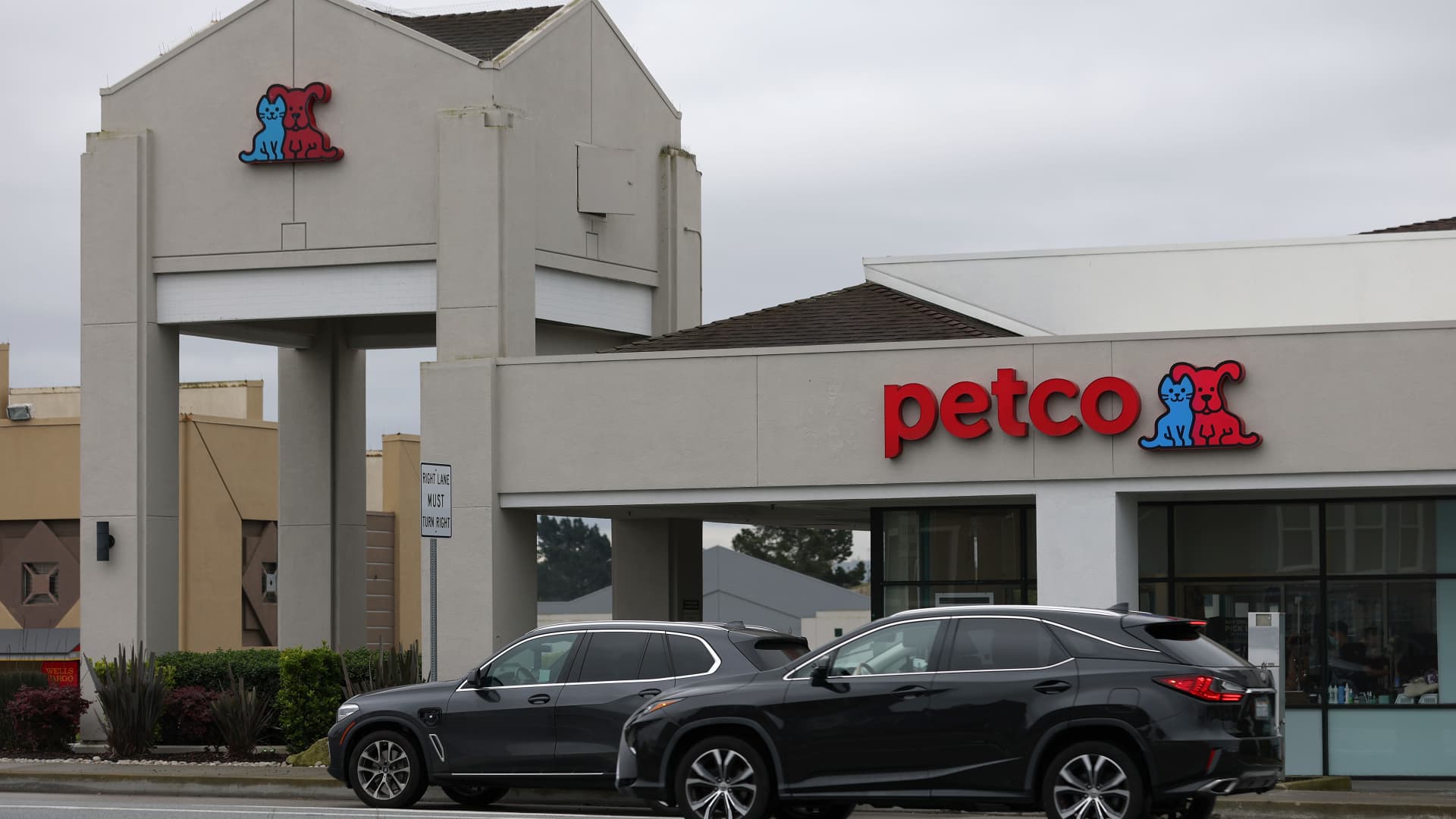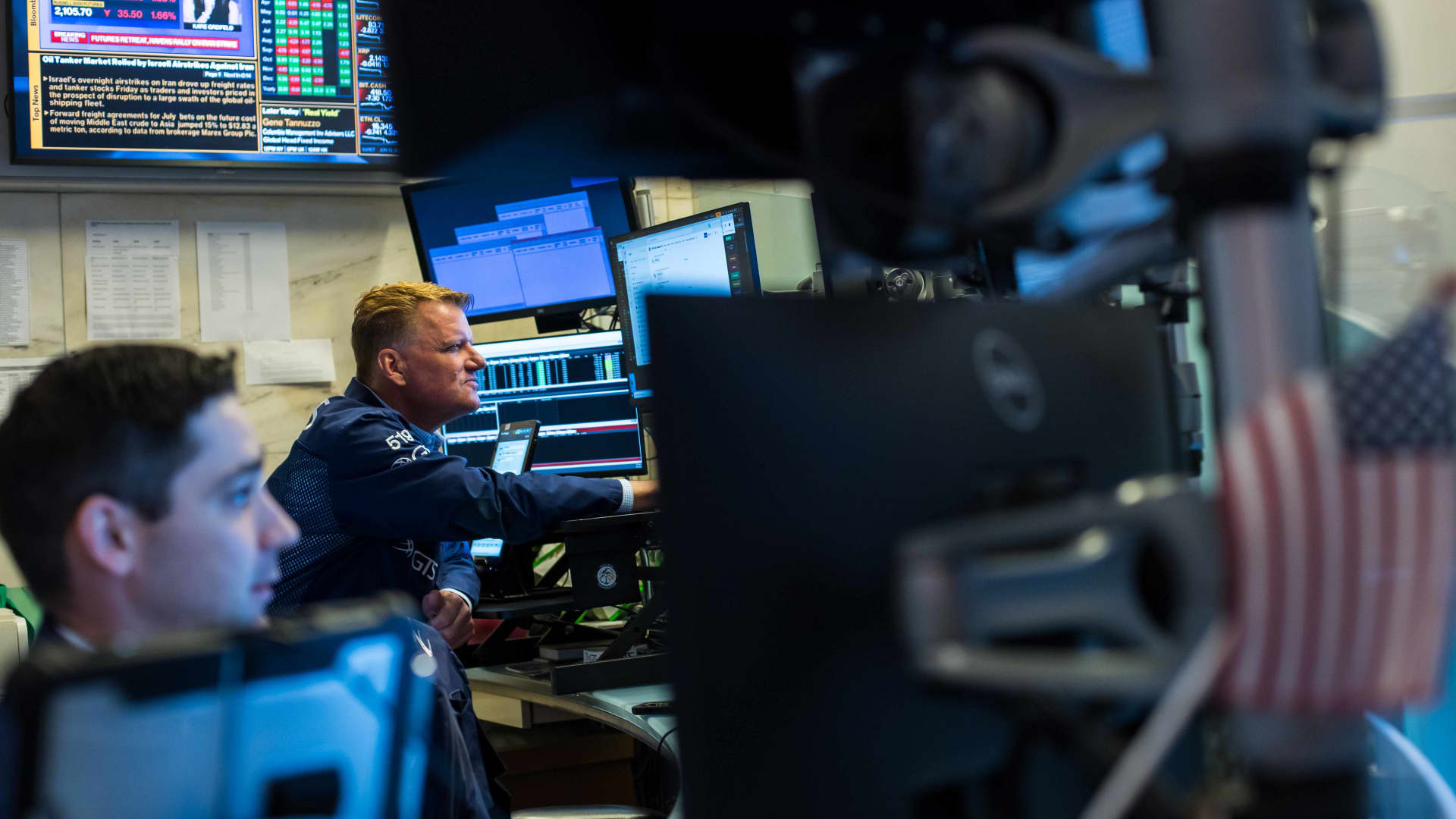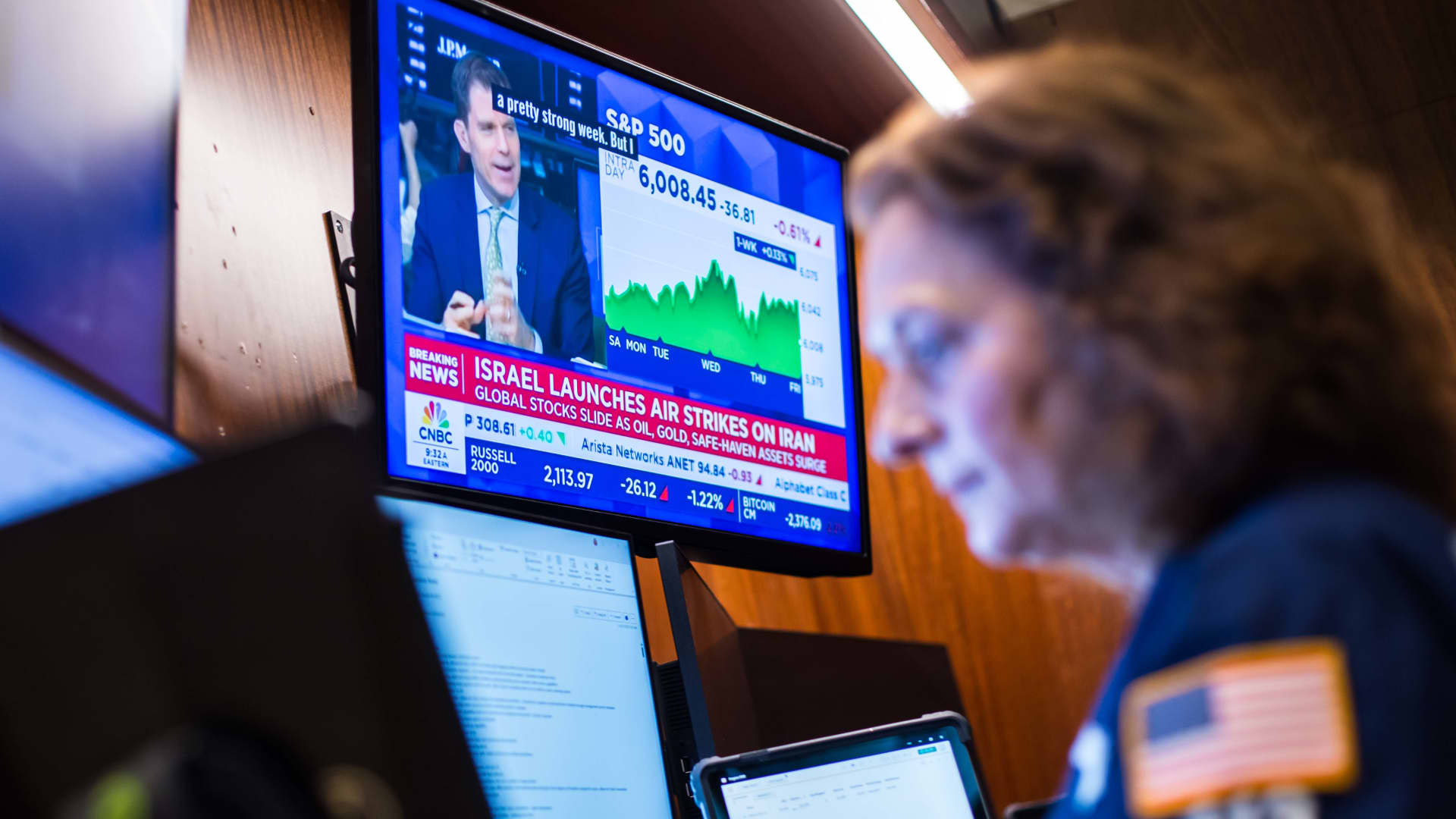What was shaping up to be a relatively calm week quickly got volatile on Friday, following Israel’s overnight strike on Iran. Here is a closer look at the three biggest themes that defined the market this week. 1. Geopolitics: The attack on Iranian nuclear infrastructure rippled through financial markets on Friday. U.S. stocks sold off on the increased tensions overseas. The S & P 500 and Nasdaq Composite tumbled 1.13% and 1.3% on Friday, respectively. Meanwhile, Brent crude futures and West Texas Intermediate crude futures added around 7% and 7.5%, respectively. Gold rose to a two-month high, as well, as investors see it as a safe haven from all the volatility. Prior to the attack, stock benchmark were on track to close the week in the positive. Instead, the S & P 500 and Nasdaq lost 0.4% and 0.6% over that stretch, snapping back-to-back weekly wining streaks. Despite a modest gain Friday, part of the safe-haven trade, the U.S. dollar index had a tough week. On Thursday, we wrote about how long-term fundamental investors should view the weaker dollar. Another big geopolitical event for investors was an announcement by U.S. and Chinese delegations that the two sides agreed on a trade-deal framework, particularly focused on rare-earth minerals. 2. Economic data: Investors received good news on the inflation front on Wednesday and Thursday. On Wednesday, the c onsumer price index, a measure of goods and services inflation across the U.S. economy, showed that core prices rose less that expected last month. The May producer price index , a gauge of wholesale inflation in the country, came in lower than expected Thursday, too. The labor market continued to show it was softening but not breaking. Weekly jobless claims for the week ending June 7 were unchanged, while continuing claims were still at multiyear highs. On the whole, the batch of economic data was encouraging as the rate of inflation subsides and unemployment remains low, providing the consumer with more buying power. 3. AI updates: It was also a week chock full of company specific news and events within the generative artificial intelligence race. AI remains one of the most important, if not the most important, drivers for financial markets. On Monday, we heard from Apple, when the company hosted its annual worldwide developer conference. Though expectations were about as muted as we’ve ever seen, the event still managed to disappoint due to the lack of AI updates. Meta Platforms, on the other hand, got investors excited this week when news broke that the company took a large investment in Scale AI and will bring the startup’s CEO on board to help start a new “superintelligence” unit within the company with the goal of achieving artificial general intelligence. Early Wednesday morning, we heard from Nvidia CEO Jensen Huang, who spoke at the company’s GTC event in Paris. While there weren’t many new updates, Huang reaffirmed that there is still a lot more accelerated compute capacity that needs to be built out, highlighting demand from hyperscale customers and sovereign entities alike. Europe, he argued, is likely to 10 times its compute capacity over the next two years. Outside the portfolio, Oracle and Advanced Micro Devices made news on AI, too. Oracle stock jumped Thursday after reporting better-than-expected quarterly results the prior evening. Impressively, the stock soared again Friday, despite the broader market sell-off, en route to its best week since 2021 . BMO Capital also upgraded Oracle to a buy rating. Oracle CEO Safra Catz’s comments on its cloud infrastructure business confirmed that there’s growing demand for AI computing power. Indeed, Oracle said revenues from that business should surge 70% year over year in its fiscal 2026. Elsewhere, Advanced Micro Devices unveiled its new AI server chip for 2026 at a company event Thursday, part of its attempt to rival Nvidia’s market-leading offering. AMD also announced that it’s landed a new high-profile customer OpenAI, the startup behind ChatGPT and Club holding Microsoft’s AI partner. The chip isn’t expected to launch until 2026, though. (Jim Cramer’s Charitable Trust is long AAPL, META, NVDA. See here for a full list of the stocks.) As a subscriber to the CNBC Investing Club with Jim Cramer, you will receive a trade alert before Jim makes a trade. Jim waits 45 minutes after sending a trade alert before buying or selling a stock in his charitable trust’s portfolio. If Jim has talked about a stock on CNBC TV, he waits 72 hours after issuing the trade alert before executing the trade. THE ABOVE INVESTING CLUB INFORMATION IS SUBJECT TO OUR TERMS AND CONDITIONS AND PRIVACY POLICY , TOGETHER WITH OUR DISCLAIMER . NO FIDUCIARY OBLIGATION OR DUTY EXISTS, OR IS CREATED, BY VIRTUE OF YOUR RECEIPT OF ANY INFORMATION PROVIDED IN CONNECTION WITH THE INVESTING CLUB. NO SPECIFIC OUTCOME OR PROFIT IS GUARANTEED.

 Economics1 week ago
Economics1 week ago
 Economics1 week ago
Economics1 week ago
 Economics1 week ago
Economics1 week ago
 Finance1 week ago
Finance1 week ago
 Blog Post1 week ago
Blog Post1 week ago
 Economics1 week ago
Economics1 week ago
 Personal Finance1 week ago
Personal Finance1 week ago
 Economics1 week ago
Economics1 week ago











